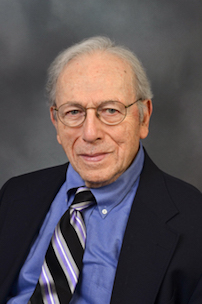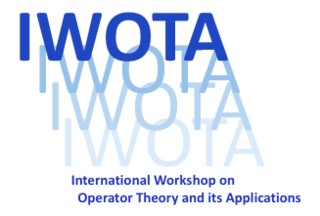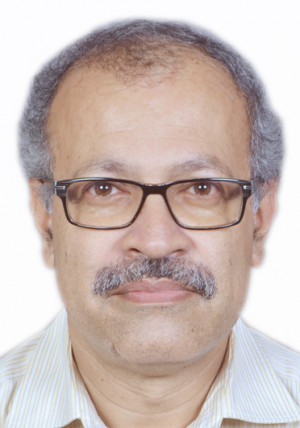
Alain Connes is a French mathematician, known for his contributions to the study of operator algebras and noncommutative geometry. He is a professor at the Collège de France, Institut des Hautes Études Scientifiques, Ohio State University and Vanderbilt University. He was awarded the Fields Medal in 1982.
In economics, dynamic inconsistency or time inconsistency is a situation in which a decision-maker's preferences change over time in such a way that a preference can become inconsistent at another point in time. This can be thought of as there being many different "selves" within decision makers, with each "self" representing the decision-maker at a different point in time; the inconsistency occurs when not all preferences are aligned.
Society for Industrial and Applied Mathematics (SIAM) is a professional society dedicated to applied mathematics, computational science, and data science through research, publications, and community. SIAM is the world's largest scientific society devoted to applied mathematics, and roughly two-thirds of its membership resides within the United States. Founded in 1951, the organization began holding annual national meetings in 1954, and now hosts conferences, publishes books and scholarly journals, and engages in advocacy in issues of interest to its membership. Members include engineers, scientists, and mathematicians, both those employed in academia and those working in industry. The society supports educational institutions promoting applied mathematics.

Karl Sigmund is a Professor of Mathematics at the University of Vienna and one of the pioneers of evolutionary game theory.
Rufus Philip Isaacs was a game theorist especially prominent in the 1950s and 1960s with his work on differential games.

George Daniel Mostow was an American mathematician, renowned for his contributions to Lie theory. He was the Henry Ford II (emeritus) Professor of Mathematics at Yale University, a member of the National Academy of Sciences, the 49th president of the American Mathematical Society (1987–1988), and a trustee of the Institute for Advanced Study from 1982 to 1992.
Mustafa Tamer Başar is a control and game theorist who is the Swanlund Endowed Chair and Center for Advanced Study Professor of Electrical and Computer Engineering at the University of Illinois at Urbana-Champaign, USA. He is also the Director of the Center for Advanced Study.
In game theory, differential games are a group of problems related to the modeling and analysis of conflict in the context of a dynamical system. More specifically, a state variable or variables evolve over time according to a differential equation. Early analyses reflected military interests, considering two actors—the pursuer and the evader—with diametrically opposed goals. More recent analyses have reflected engineering or economic considerations.

Jean Paul Frédéric Serra is a French mathematician and engineer, and known as one of the co-founders of mathematical morphology.
Konrad Osterwalder is a Swiss mathematician and physicist, former Undersecretary-General of the United Nations, former Rector of the United Nations University (UNU), and Rector Emeritus of the Swiss Federal Institute of Technology Zurich. He is known for the Osterwalder–Schrader theorem.

Huzihiro Araki was a Japanese mathematical physicist and mathematician who worked on the foundations of quantum field theory, on quantum statistical mechanics, and on the theory of operator algebras.
Juan Luis Vázquez Suárez is Professor of Applied Mathematics at Universidad Autónoma de Madrid (UAM), Spain.
Christoph J. Scriba was a German historian of mathematics.

Leon Petrosjan is a professor of Applied Mathematics and the Head of the Department of Mathematical Game theory and Statistical Decision Theory at the St. Petersburg University, Russia.
François Louis Baccelli is senior researcher at INRIA Paris, in charge of the ERC project NEMO on network mathematics.

International Workshop on Operator Theory and its Applications (IWOTA) was started in 1981 to bring together mathematicians and engineers working in operator theoretic side of functional analysis and its applications to related fields. These include:
Ji-Feng Zhang was born in Shandong, China. He is currently the vice-chair of the technical board of the International Federation of Automatic Control (IFAC), the vice-president of the Systems Engineering Society of China (SESC), the vice-president of the Chinese Association of Automation (CAA), the chair of the technical committee on Control Theory (CAA), and the editor-in-chief for both All About Systems and Control and the Journal of Systems Science and Mathematical Sciences.

Soumitro Banerjee is an Indian electrical engineer and a professor at the Department of Physical Sciences of the Indian Institute of Science Education and Research, Kolkata. He is known for his studies on bifurcation phenomena in power electronic circuits and is an elected fellow of all three major Indian science academies: the National Academy of Sciences, India, Indian Academy of Sciences, and Indian National Science Academy. He is also a fellow of The World Academy of Sciences, Institute of Electrical and Electronics Engineers, West Bengal Academy of Sciences and the Indian National Academy of Engineering. The Council of Scientific and Industrial Research, the apex agency of the Government of India for scientific research, awarded him the Shanti Swarup Bhatnagar Prize for Science and Technology, one of the highest Indian science awards for his contributions to Engineering Sciences in 2003.
Hamidou Tembine is a French game theorist and researcher specializing in evolutionary games and co-opetitive mean-field-type games. He has been a Global Network Assistant Professor at New York University. He has been also the principal investigator and director of the Game Theory and Learning Laboratory at New York University.







